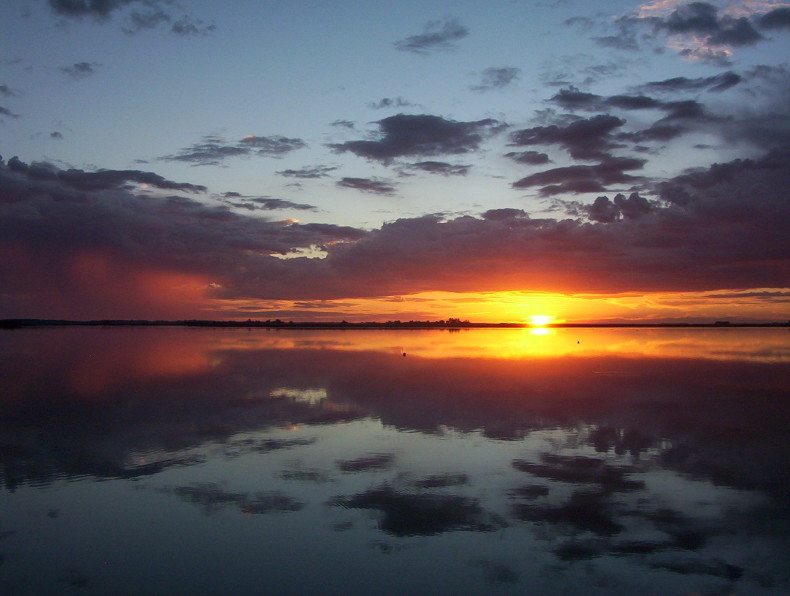 This past Friday evening, when I heard that the 195 nations represented at the COP21 climate meeting in Paris had reached a draft agreement, I was pleasantly surprised. On Saturday morning, when I saw the stronger-than-forecast draft text, I was shocked. And on Saturday afternoon, when the final agreement was signed—signed!—I was thrilled.
This past Friday evening, when I heard that the 195 nations represented at the COP21 climate meeting in Paris had reached a draft agreement, I was pleasantly surprised. On Saturday morning, when I saw the stronger-than-forecast draft text, I was shocked. And on Saturday afternoon, when the final agreement was signed—signed!—I was thrilled.
The Paris agreement won’t singlehandedly head off the worst effects of climate change, as many have already pointed out. But for the first time, almost every nation on the planet has committed to reducing its greenhouse-gas emissions. If you, like the rest of us, depend on the Earth’s atmosphere for survival, the agreement is good news.
Just how good, however, depends on your perspective.
I’ve been writing about climate change since 2003. It’s a fascinating job, one I love. But it’s always been a bit like working the crime beat in a lawless nation: no matter how diligently I or anyone else documents the problem, there are effectively no system-wide mechanisms in place to solve it—and none on the way.
When I started reporting on climate, the second Bush administration had recently rejected the Kyoto Protocol, calling it “fatally flawed.” Subsequent international negotiations over emissions reductions—Bali in 2007, Copenhagen in 2009, Cancún in 2010—made little or no progress. My expectations for Paris weren’t just low. They were nonexistent.
I wasn’t following the climate story in the summer of 1988, when George H.W. Bush, campaigning for his first term, said, “Those who think we are powerless to do anything about the greenhouse effect forget about the White House effect; as President, I intend to do something about it.” Back then, the world’s nations had just agreed to cooperate on protection of the ozone layer, and while the “greenhouse effect” was recognized as a much knottier problem, it seemed far more solvable than it does today. That fall, the United Nations first convened the Intergovernmental Panel on Climate Change, and in 1992, at the Earth Summit in Rio de Janeiro, 170 nations agreed to the United Nations Framework Convention on Climate Change, which called for stabilizing atmospheric greenhouse-gas concentrations at a safe level. Though the treaty contained no binding commitments, those were widely expected to be the next step. “We don’t have another 20 years to squander,” summit organizer Maurice Strong said in his closing remarks.
On Saturday afternoon, as I chatted with colleagues about the Paris agreement, many were jubilant. But some, especially those who have been on the beat since it began, were less enthusiastic. John Ryan of KUOW in Seattle remembered writing his first article about what climate change would mean for biodiversity (“tl;dr carnage”) back in 1990. “It will take much more than this deal to bring the world back from the catastrophic unraveling of ecosystems and societies we are still pointed toward,” he said. Michael Lemonick of Scientific American, who has been covering climate change for 28 years, commented: “If you’d told me back then how pathetically little progress we would make until now I would have been appalled.”
Ecologists use the term “shifting baselines” to describe the way our expectations change along with our reference points. We remember the forests or deserts or creeks of our childhood as “natural,” even if previous generations see them as massively degraded. To me, the natural state of international climate negotiations is near-total failure, and the lack of it is worth celebrating. To my colleagues who remember the optimism of earlier days, the progress in Paris looks an awful lot like failure.
Neither of us is wrong. The Paris agreement is a huge step toward easing the suffering of future generations, but in many ways it’s only the first one, and the hour is already late. Through denial, inattention, and deliberate obfuscation, the world has squandered not 20 years but 23, all the while loading the atmosphere with greenhouse gases whose effects will be felt for centuries. The celebration should be sweet, but it must be short.
Thanks, Michelle, for this very thoughtful approach. As I said on Facebook, but will repeat here, my cranky attitude toward the agreement is based on the fact that
1. Even the pledges by nations were fully implemented, we’d shoot well past the 2°C overall warming goal
2. There’s no guarantee that the pledges will be fully implemented, since they’re voluntary. There’s just hope. Nobody actually knows how, in a practical rather than a theoretical way, this can be accomplished.
Any agreement at all is better than no agreement, of course. But this feels to me like a lifelong smoker finally admitting at age 55 that he needs to stop, and promising to do so. That’s a crucial step, but it doesn’t mean he’ll actually stop.
Michelle, great perspective, and I find myself agreeing with Mike. It is, however, a political milestone of sorts from which to start.
The most heartening thing I’m hearing is a redoubled commitment among activists to broaden and strengthen the movement. That’s not nothing!
“a political milestone of sorts from which to start” sounds right to me.
I wonder if all this talk about a “groundbreaking,” “revolutionary,” “breakthrough” agreement is going to backfire when it sinks in that it’s more like what Hank Perry says.
On the other hand, believing that the agreement is revolutionary might put people in a mindset to entertain actual revolutionary policies. I don’t discount that.